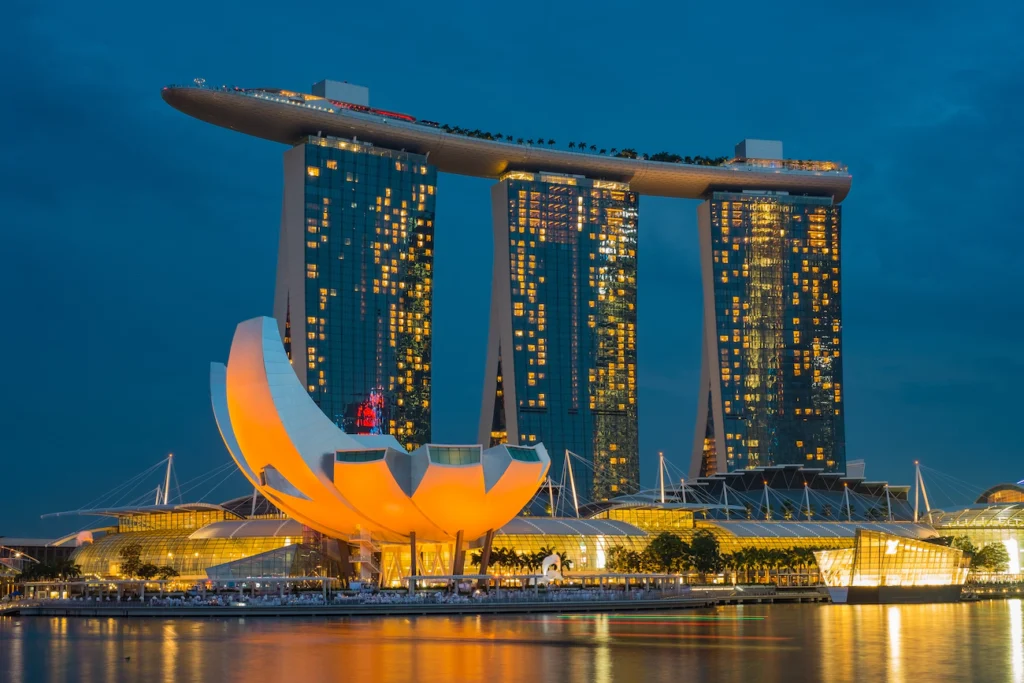On 15 April 2025, a major political development took place in Singapore – President Tharman Shanmugaratnam dissolved the Parliament. With this, preparations for the 14th General Election of Singapore have begun. Nomination Day has been set for 23 April, and the Writ of Election is also going to be issued soon, which will mention the date of polling day, election deposit and necessary documents.
This election is special for a number of reasons. The biggest thing – this is happening for the first time under the leadership of Prime Minister Lawrence Wong. He took over as PM in May 2024 and now the people of Singapore will judge his leadership model through their votes.

What does Parliament Dissolution mean?
In Singapore’s democratic system, when Parliament dissolves, it means that the tenure of the existing MPs has ended and the way for a new general election has been cleared. But one important thing is that Cabinet ministers continue their roles until the first sitting of the new Parliament takes place. This time the Parliament that was dissolved worked for almost 4 years and 8 months – which was the second longest session in Singapore’s history.
The tenure of this Parliament has been in the shadow due to the departure of some candidates as a total of 6 MPs left their seats – the highest number after independence.
What’s new in GE2025?
This time, a total of 97 seats will be up for election – which include 18 Group Representation Constituencies (GRCs) and 15 Single Member Constituencies (SMCs). The People’s Action Party (PAP) is expected to face challenges in every constituency, as has been happening since 2015.
11 political parties, including 2 major opposition alliances, can field their candidates. The Workers’ Party (WP) and Progress Singapore Party (PSP) won their seats in Parliament in the 2020 elections. WP chief Pritam Singh is still the Leader of the Opposition and his party is going to contest with a strong presence this time too.

What are voters thinking?
According to a January 2025 survey, voters are most concerned about cost of living, jobs and unemployment. Singapore has a highly developed economy but rising prices, inflation and job security issues have become a real challenge for people.
These topics are going to be the core of this election. Every party will try to show in its manifesto that it can provide a better solution to these practical issues.
First Full Election after COVID
GE2025 is historical for another reason too – it will be the first full-fledged general election after the COVID-19 pandemic. This time physical rallies are coming back, which were last seen in 2015. This means that the level of political energy, ground connect and public participation is going to be very high.
The political mood of the people has also changed a lot after the pandemic. Now they want to see performance and accountability, not just promises.
What changes in the Electoral Map?
On January 22, the Electoral Boundaries Review Committee (EBRC) was formed, whose job was to review the electoral map of Singapore. 7 weeks later, they submitted their report in which some new boundary changes were suggested. But 5 GRCs and 4 SMCs remain unchanged.
These changes will definitely have an impact on ground-level politics, because voter composition also changes when boundaries change. Political parties are making their strategies keeping this in mind.
Political Ground Game Begins
Ever since the election buzz is building up, political parties have also strengthened their ground game. New candidates are being announced, public walkabouts and outreach events have increased, and political content on social media has become quite active.
All this is an indication that all parties are taking this election seriously. There will be intense competition for every seat, and every vote will require hard work.
Conclusion: What will change this time?
GE2025 is not just an election, it is a leadership test, a public sentiment meter, and a vision contest. Lawrence Wong’s 4G leadership team will have to prove themselves. Will people want him to become PM again? Or will the opposition get a new opportunity?
Only time will tell, but one thing is for sure – this chapter on Singapore democracy is going to be very energetic and engaging.
What do you think? Will GE2025 bring some change? Do share your thoughts in the comment section!
If you liked this blog, do share it and stay connected for more such updates!
